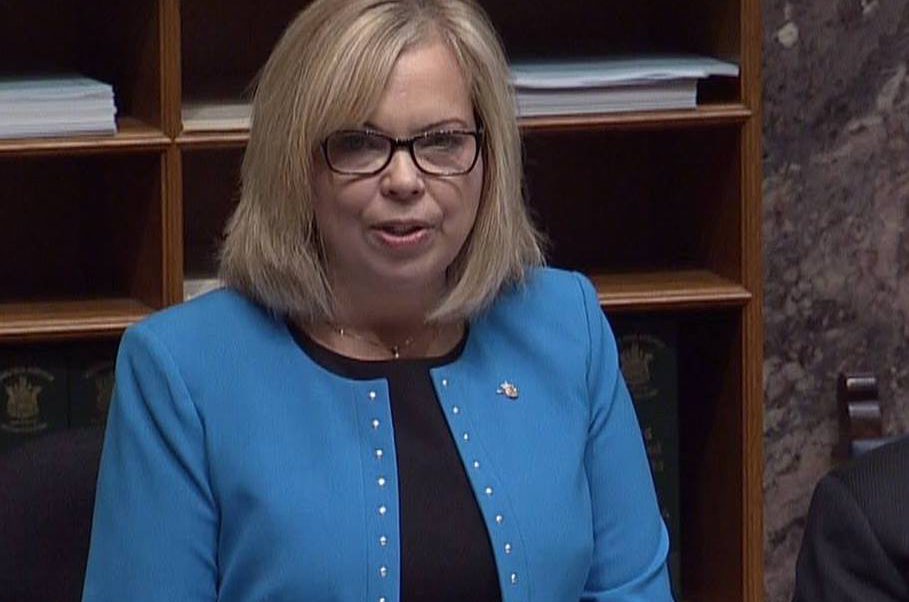Coralee Oakes says that is her biggest fear when it comes to the upcoming review of the electoral boundaries.
She says that could be the outcome if the ridings are based strictly on the number of people that live in the area…
“In our rural ridings we don’t have the population base, so I think what you could find, you could have our riding become amalgamated or eliminated completely, or become a riding that’s say from Hixon to Kamloops, and your MLA is in Kamloops.”
Oakes says other things need to be taken into consideration when deciding on the ridings…
“What is critically important is to ensure that special circumstances be taken into consideration in rural ridings because of just the geographical areas of our ridings, they are so large. And then the other piece that I don’t think the government recognized in the bill is the fact that so much or our area just doesn’t have connectivity, whether it’s internet, or cell service, or what have you.”
Oakes is encouraging people to come out and voice their opinions when the Electoral Boundaries Commission visits the riding.
“I’m asking the Commission to make sure that they’re coming into our communities, and not just the major cities along Highway 97. I think it’s important that they go out and listen to people in communities, for example Horsefly or Wells, so they understand the impact of how large our ridings really are. And then the second piece is we as constituents, and people living in these rural ridings, are going to have to get out and share our stories with the commission and explain how critically important it is to have representation.”
Oakes questions how well the Attorney General knows these ridings.
“In introduction of this bill, he talked about the fact that he recognizes that not everyone has access to high speed internet and that was the extent or the understanding of the circumstances that exist in ridings like Cariboo North. Not only do we not have high speed internet in so many of these areas, there is no internet or cell service, you know landlines can be down for days at a time.”
Oakes says Bill 7, the Electoral Boundary Commission Amendment Act, is being debated right now and she is hoping that changes can be made to it.
She says she understands that there has been significant population growth in the urban ridings, and she agrees that there needs to be some ridings added where that is happening, but she doesn’t want it to come at the expense of rural ridings.
The Attorney General’s Ministry, In response to all of this, said that the Electoral Boundaries Commission is independent of government and it’s know at this point what it will recommend.
“The Commission will be looking at all electoral districts in the province as part of its work to recommend electoral boundaries for the next two general elections that ensure effective representation for people and the core democratic principle that everyone’s vote should be reasonably equal in strength.”
A ministry spokesperson goes on to say that the proposed amendments include giving the commission the option to recommend adding up to six new districts in response to population growth.
The ministry also said that the proposed amendments would recognize the representation concerns in less populated regions by specifying that the commission may take into account special considerations respecting demographic and geographic factors.
-Special geographic considerations, including a manageable geographic size for electoral districts.
-Any special demographic considerations, including communities of interest.
Overall geographical considerations might include things like overall geographic size of the district, and ease of travel within the district and between the district and the capital.
Demographic considerations might include things like population density and distance between communities in the electoral district, and community of interest factors (such as special characteristics of the communities themselves, social and economic connections within and between communities, or cultural and linguistic connections.)
Something going on in the Cariboo you think people should know about?
Send us a news tip by emailing [email protected].








